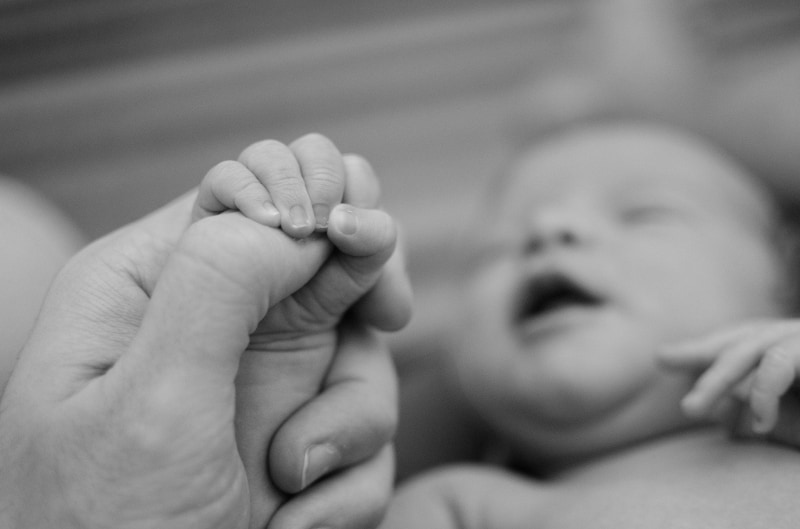Re A, B & C (Adoption : Notification of Fathers and Relatives) Judgment Handed down 29th January 2020.

Overview
Each of the courts at first instance was concerned with a similar a factual situation wherein the mothers had, each for different reasons, concealed their pregnancies and sought to conceal the birth of their child from its father and/or relatives in circumstances where adoption was the likely long term outcome for the child and in two cases this is what the mother wanted.
The lead judgment given by Jackson LJ considers the statutory context and long line of authorities relevant to decision-making in the question of withholding notice from fathers and relatives when the Local Authority intervenes in family life and the route for addressing this question in and outside of the courts. Jackson LJ’s judgment provides an analysis of the law relevant to decision-making and summarises the process and principles that should be applied.
A key element of the decision addresses whether the welfare paramountcy principle applies directly when deciding whether or not to notify a putative father or a relative of the existence of the child or the proceedings. The conclusion is that the welfare of the child is not the paramount consideration of the local authority and court. Instead, the outcome should be determined by a balancing of the rights and interests of all the individuals concerned. There is no single test for distinguishing between cases in which notification should and should not be given.
Summary of Issues Considered
Article 8 and Article 6
The Court naturally considered Article 6 and Article 8. After looking at all the factors relevant to Article 8 Jackson LJ provides a helpful summary relating to cases of concealed pregnancy and birth in assessing the existence of Article 8 Rights [44]
So, factors that may indicate the close personal ties that constitute family life (though their absence does not automatically negative its existence) include: marriage or a marriage-like relationship, cohabitation, length of relationship, intention to found a family, demonstration of commitment by having children together, demonstrable commitment to the child before and after birth. In cases of undisclosed pregnancy and birth, a father or other family member will have had no opportunity to demonstrate commitment to the child and the focus will inevitably be on other factors and a counterfactual assessment of the likely position had the facts been known.
The existence or otherwise of Article 8 Rights does not determine the outcome either way it is but one factor in a complex balancing process that must be taken into account.
Application of the core principles
The Court considered whether if at all three particular core statutory principles from the Children Act 1989 and the Adoption and Children Act 2002 must necessarily be applied to these decisions, namely: welfare paramountcy, the prejudicial effect of delay and the welfare checklists in Section 1(3) of the Children Act 1989 and Section 1(4) of the Adoption and Children Act 2002.
The judgment determines that the decision regarding notification for the local authority and the court is not one “relating to the adoption of a child”, but a decision about who should be consulted about such a decision. In a departure from the way some previous authorities on this issue had been understood the Court concluded that the decision does not directly engage these core principles as a statutory requirement and so the welfare of the child is not paramount.
‘child welfare, prompt decision-making and a comprehensive review of every relevant factor, including those mentioned in the checklists, are all central to the notification decision, the decision is not one that is formally governed by the provisions of s.1 of the CA 1989 or of the ACA 2002 and the welfare of the child is not the paramount consideration of the local authority and the court in this context.’ [84]
The approach to decision making should be the same if the decision is being made by the local authority without an application to court or by the court. It should be the same whether it is a decision relating to the notification of an extended family member or a father. The approach doesn’t alter matter if the decision is one to be made in care proceedings, proceedings under the Adoption and Children Act 2002 or under Part 19.
Procedure and Timing – Summary
- Determination of whether an application to court is necessary should be made at a very early stage – these cases require speedy decisions. In less clear-cut cases an application should be issued so that problems concerning the lack of notification do not arise when adoption proceedings are later issued.
- Applications relating to a putative father should be made under Part 19 unless issues of significant harm have made it necessary to issue proceedings for a care or placement order. If the application is under Part 19, it must be heard in the High Court. Applications regarding notification of a close relative should be made under the inherent jurisdiction.
- It is not mandatory for a respondent to be named in the application. Neither a father (with or without parental responsibility) nor members of the wider maternal/paternal family are to be served with or notified of the application. On issue the child should be joined as a party and a Children’s Guardian appointed
- An urgent CMH should follow, ideally attended by the CAFCASS officer to consider if any further evidence is required, the filing of the Guardian’s analysis and recommendations, the filing of written submissions and the fixing of an early date for the court to make a decision.
- It is a matter for the court as to whether it should require written or oral evidence from the mother. The time allowed for the hearing needs to reflect whatever evidence or argument is necessary, court time must be prioritised for these applications.
The judgment records a statement agreed by the parties to the appeals of the steps that need to be taken by a local authority in cases such as these. The Court does not specifically endorse those steps recognising that local authorities must decide their own procedures. But the inclusion of these agreed steps would indicate they found general favour with the Court.
Summary of principles governing decisions
The Judgment provides a summary of principles governing decisions (by local authorities as adoption agencies or by the court) as to whether a putative father or a relative should be informed of the existence of a child who might be adopted;
- The law allows for ‘fast-track’ adoption with the consent of all those with parental responsibility. But if those with parental responsibility request for a father and/or family members not to be notified then the decision maker must engage with the principles in this judgment.
- Where the mother opposes notification being given to the child’s father or relatives her right to respect for her private life is engaged and can only be infringed where it is necessary to do so to protect the interests of others.
- The adoption decision for the child and potentially for other family members is capable of supplying a justification for overriding the mother’s request.
- The decision should be prioritised and the process characterised by urgency and thoroughness.
- Establishing the facts: Often limited and one-sided information is available. The reasons for confidential relinquishment must be respectfully scrutinised, the account cannot simply be taken at face value. All information that can be discovered without compromising confidentially should therefore be gathered. A first-hand account from the person seeking confidentiality will normally be sought.
- The investigation should enable broad conclusions to be drawn about the relative weight to be given to the factors (see below for some of the relevant factors) that must inform the decision.
- The task is to strike a fair balance between the various interests involved. The welfare of the child is an important factor but it is not the paramount consideration.
Factors likely to be relevant to the decision
Parental responsibility. Compelling reasons are required before the withholding of notification from a father with parental responsibility can be justified.
Article 8 rights. If the person from whom it is sought to withhold notification has an established or potential family life with the mother or the child, the right to a fair hearing is engaged and strong reasons are required before the withholding can be justified.
The substance of the relationships. An assessment must be made of the substance of the relationship between the parents, the circumstances of the conception, and the significance of relatives. With what degree of objective justification might such a person complain if they later discovered they had been excluded from the decision?
The likelihood of a family placement being a realistic alternative to adoption. An objective view should be taken about whether a family member may or may not be a potential carer. Where a family placement is unlikely to be worth investigating or where notification may cause significant harm to those notified, this factor will speak in favour of maintaining confidentiality; anything less than that and it will point the other way.
The physical, psychological or social impact on the mother or on others of notification being given. Where this would be severe these must weigh heavily in the balancing exercise. On the other hand, excessive weight should not be given to short term difficulties and to less serious situations involving embarrassment or social unpleasantness.
Cultural and religious factors. These may enhance the risks of notification, but they may also mean that the possibility of maintaining the birth tie through a family placement is of particular importance for the child.
The availability and durability of the confidential information. Where a mother declines to identify a father she may face persuasion, but she cannot be coerced. In some cases the available information may mean that the father is identifiable, and maternal relatives may also be identifiable. The extent to which identifying information is pursued is a matter of judgement. The consequences, particularly for the child and any prospective adopters, of the child’s existence being concealed but becoming known to family members later on is a relevant consideration.
The impact of delay. There may be circumstances where delay would have particularly damaging consequences for the mother or for the child; for example, it would undoubtedly need to be taken into account if it would lead to the withdrawal of the child’s established carers or to the loss of an especially suitable adoptive placement.
Any other relevant factors. The list of relevant factors is not closed. Mothers may have many reasons for wishing to maintain confidentiality and there may be a wide range of implications for the child, the father or for other relatives.
Conclusion
In all three cases, the Court of Appeal upheld notification to the persons the mothers sought to withhold notification from. Whilst the Court acknowledged that each case will be fact-sensitive, the judgment and decisions in this appeal send a strong message as to when a father or family members should not be notified of the existence or proposed adoption of a child.
It is hoped that the clarification provided by this case will assist local authorities, professionals and courts to make the difficult decisions required in such cases.
Written by
Charlotte Wilce and Sara Anning of Parklane Plowden Chambers.
Charlotte was led by Darren Howe QC, 1GC and instructed by Foys Solicitors for the Appellant Mother in Re C.
Sara was led by Catherine Wood QC, 4PB and instructed by Howells LLP for the Respondent Child by her Children’s Guardian in Re C.
The Judgment can be viewed here.










